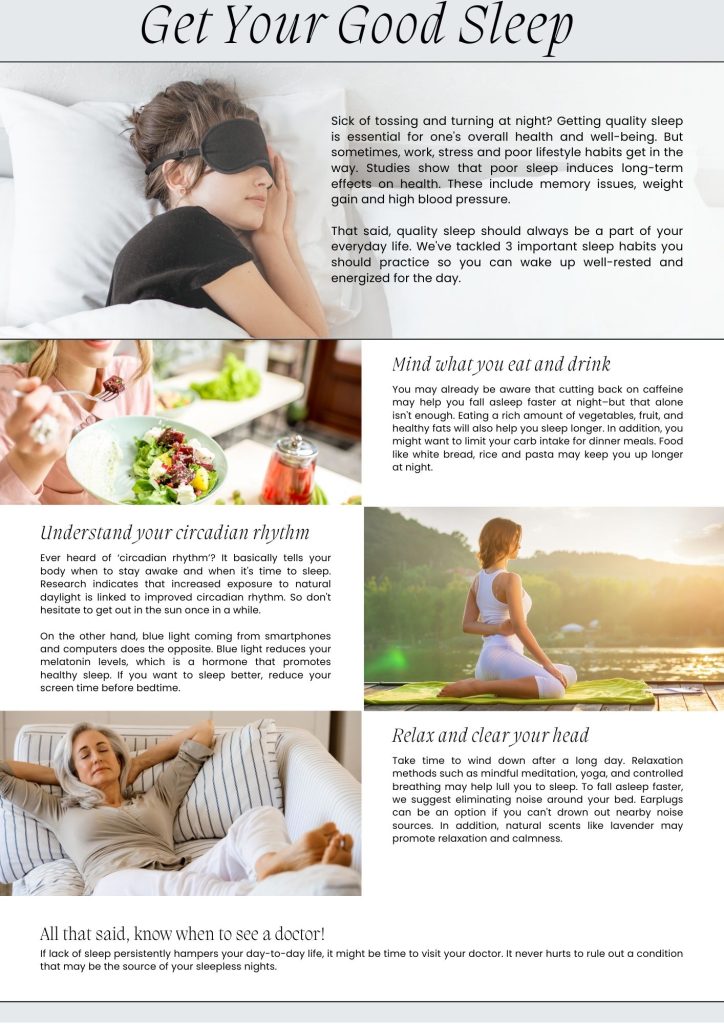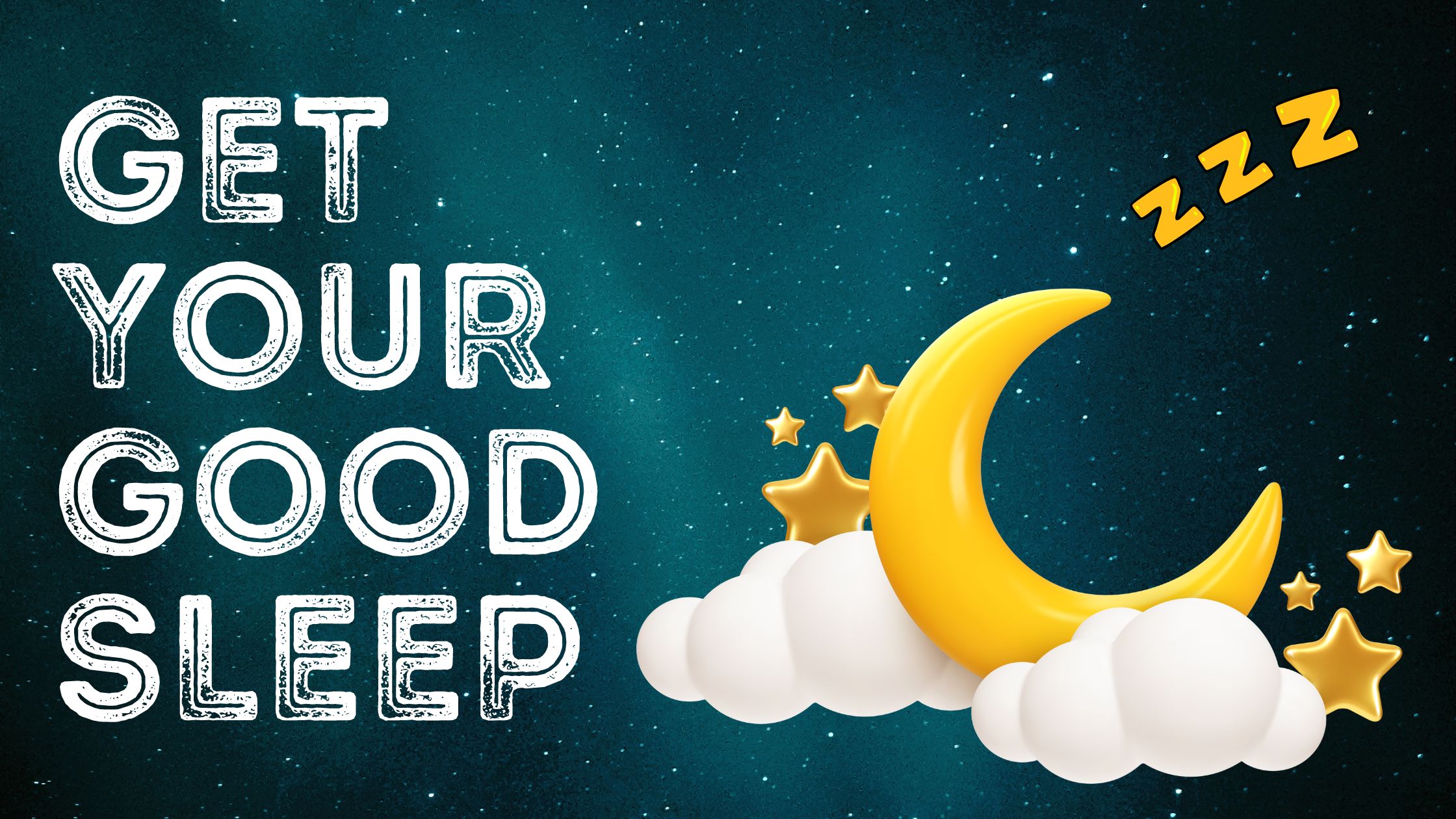
3 Habits That’ll Get You Good Sleep
Sick of tossing and turning at night? Getting quality sleep is essential for one’s overall health and well-being. But sometimes, work, stress and poor lifestyle habits get in the way. Studies show that poor sleep induces long-term effects on health. These include memory issues, weight gain and high blood pressure.
That said, quality sleep should always be a part of your everyday life. We’ve tackled 3 important sleep habits you should practice so you can wake up well-rested and energized for the day.
- Mind what you eat and drink
You may already be aware that cutting back on caffeine may help you fall asleep faster at night–but that alone isn’t enough. Eating a rich amount of vegetables, fruit, and healthy fats will also help you sleep longer. In addition, you might want to limit your carb intake for dinner meals. Food like white bread, rice and pasta may keep you up longer at night.
- Understand your circadian rhythm
Ever heard of ‘circadian rhythm’? It basically tells your body when to stay awake and when it’s time to sleep. Research indicates that increased exposure to natural daylight is linked to improved circadian rhythm. So don’t hesitate to get out in the sun once in a while.
On the other hand, blue light coming from smartphones and computers does the opposite. Blue light reduces your melatonin levels, which is a hormone that promotes healthy sleep. If you want to sleep better, reduce your screen time before bedtime.
- Relax and clear your head
Take time to wind down after a long day. Relaxation methods such as mindful meditation, yoga, and controlled breathing may help lull you to sleep. To fall asleep faster, we suggest eliminating noise around your bed. Earplugs can be an option if you can’t drown out nearby noise sources. In addition, natural scents like lavender may promote relaxation and calmness.
.
All that said, know when to see a chiropractor!
If lack of sleep persistently hampers your day-to-day life, it might be time to visit your doctor. It never hurts to rule out a condition that may be the source of your sleepless nights.


